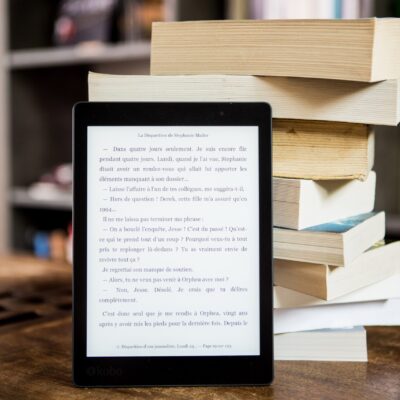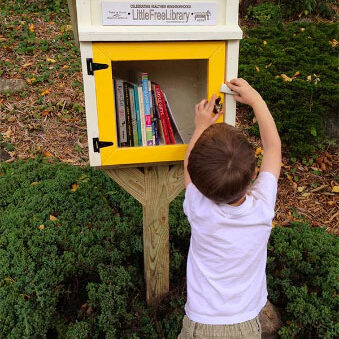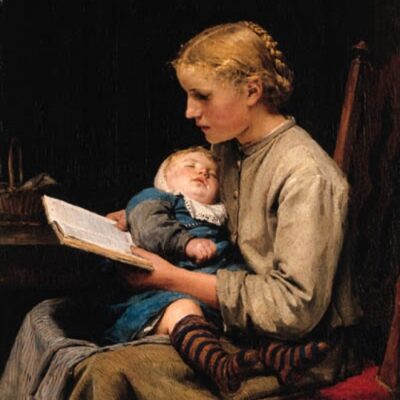When the Apricots Bloom by Gina Wilkinson
In 2002, Australian foreign correspondent Gina Wilkinson was living and working in Bangkok when her Canadian husband was offered a posting in Baghdad working for the United Nations Children’s Fund (UNICEF). That was about a year before the start of the Iraq War and at that time, Iraq was pretty much cut off from the outside world as a result of the sanctions that were posed after the Gulf War (1990-1991). There was no Internet, or foreign TV, no independent newspapers or magazines, and very few westerners were allowed in the country. Although Ms. Wilkinson wanted to accompany her husband to Baghdad, Saddam Hussein did not allow foreign journalists to live in Iraq. So, she went with him under the visa category “Dependent Spouse,” the same visa category her character Ally uses to enter Iraq in When the Apricots Bloom.
Ms. Wilkinson documented her experiences in Baghdad in a narrative nonfiction account titled Between the Devil and the Deep Blue Sky, published in 2007. But one memory kept haunting her. Very soon after she arrived in Baghdad, she was befriended by a local woman who, as it turned out, was working as an informant for the secret police (Mukhabarat), reporting back on Ms. Wilkinson’s every move. Throughout the years, the author kept wondering ‘Was it just a job for her or were parts of their friendship real?’ She decided to explore this question by writing a novel in which a similar relationship exists between a foreign diplomat’s wife (Ally Wilson) and a woman (Huda) working for her husband (Tom Wilson) at the Australian embassy. Ms. Wilkinson begins When the Apricot’s Bloom with the moment the secret police arrive at Huda’s door and tell her she has to befriend her boss’s wife in order to get insider information.
There are similarities between Ally and Ms. Wilkinson in terms of nationality, profession, and the roles they are forced to play while in Baghdad. Yet as the plot of When the Apricots Bloom progresses, the author intensifies suspense by creating a fictional situation in which several primary characters must defy the secret police and try to leave the country. It is at this point that the three protagonists (Ally, Huda, and Rania) must put down past grievances and work as a team to save their children and themselves.
This novel shines on so many levels with well-developed characters, a suspenseful plot, and vivid descriptions of Iraq’s beauty under the shadow of tyranny and terror. Against the backdrop of the “biggest, bluest, most flawless sky,” the quiet streets scented with lavender, and the blooming apricots, “traitors” are rounded up daily and executed or sent to Abu Ghraib where torture and abuse are guaranteed. Throughout the novel Ms. Wilkinson compares Iraq before and after Saddam Hussein assumed the presidency in 1979. The difference is illuminated in the following quote.
Like her father’s dogged refusal to talk about his lost wife, there was a gap in Iraqi history too. It was as if time, and collective memory itself, stopped when Saddam seized power, when war, sanctions, and tyranny brought the cosmopolitan “golden years” to a bloody end. Nowadays, there was only the glorious past or the future. The pain that came in between, no one spoke of aloud. At least, not to Ally. She wondered if Huda had known all along that the riverside restaurant would be deserted. Perhaps she chose it because there’d be fewer people to witness her consorting with a foreigner. Ally couldn’t blame her for that. [Kindle Version, p. 158]
















